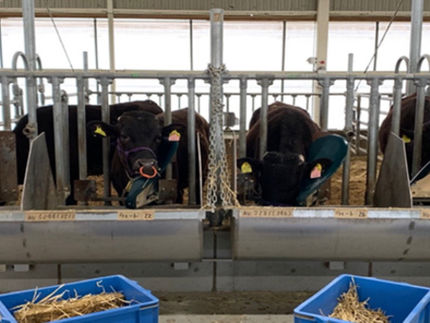Sustainable palm oil alternative from the lab
TU Hamburg start-up receives EXIST research transfer grant
Advertisement
palm oil is a real climate killer. Around 19 million hectares of rainforest around the equator have already been cleared for it. This not only releases a large amount of CO2, but also destroys important habitat for endangered animal species. However, since the vegetable oil is not only used in fuel, but also in every second supermarket product according to the World Wide Fund For Nature (WWF), Europe still imports up to seven million tons of palm oil every year. The startup COLIPI is developing a sustainable alternative that is also CO2-neutral: the production of oils with the help of yeasts.

The founders Jonas Heuer, Max Webers, Philipp Arbter and Tyll Utesch.
Thea Brandauer
With their technology, the founders Max Webers, Philipp Arbter, Jonas Heuer and Tyll Utesch from the Institute of Bioprocess and Biosystems Engineering at the Technical University of Hamburg want to revolutionize the cosmetics and food industry in the long term.
Fermentation - When yeast produces fat
The sustainable oil is produced by fermentation. For this purpose, COLIPI uses yeasts that utilize sugars from industrial and agricultural waste products, such as molasses or other biomasses, and thus keep their metabolism running. After nitrogen and phosphates in particular have been consumed, growth stops and lipids are formed with the remaining excess carbon. These lipids can then be isolated and, depending on the type of yeast, are very similar to many vegetable oils. Normally, CO2 is produced during fermentation. But here, too, the team has found a climate-friendly solution: "We are developing a globally unique technology that makes the entire production process CO2-neutral. We are currently having this patented," says Philipp Arbter.
More sustainability in the cosmetics and food industry
The "green" oil can be used to imitate palm oil or cocoa butter, but also to develop completely new oils without a natural model. "The diversity of oils is also reflected in their use in creams, soaps or chocolates. In other words, everywhere where vegetable oils are also used today," says COLIPI project manager Max Webers.
The start-up is putting the money from the EXIST funding program into expanding oil production from laboratory scale to industrial production. For example, he said, demand for the oil in commercial products is already high as awareness of greater sustainability grows. "Products based on CO2-neutral oils give companies in the cosmetics and food industries a clear market advantage, so no one wants to jump on the bandwagon too late," Max Webers emphasizes. The first products with COLIPI's oil are expected to be on the market in two years.
Note: This article has been translated using a computer system without human intervention. LUMITOS offers these automatic translations to present a wider range of current news. Since this article has been translated with automatic translation, it is possible that it contains errors in vocabulary, syntax or grammar. The original article in German can be found here.
































































